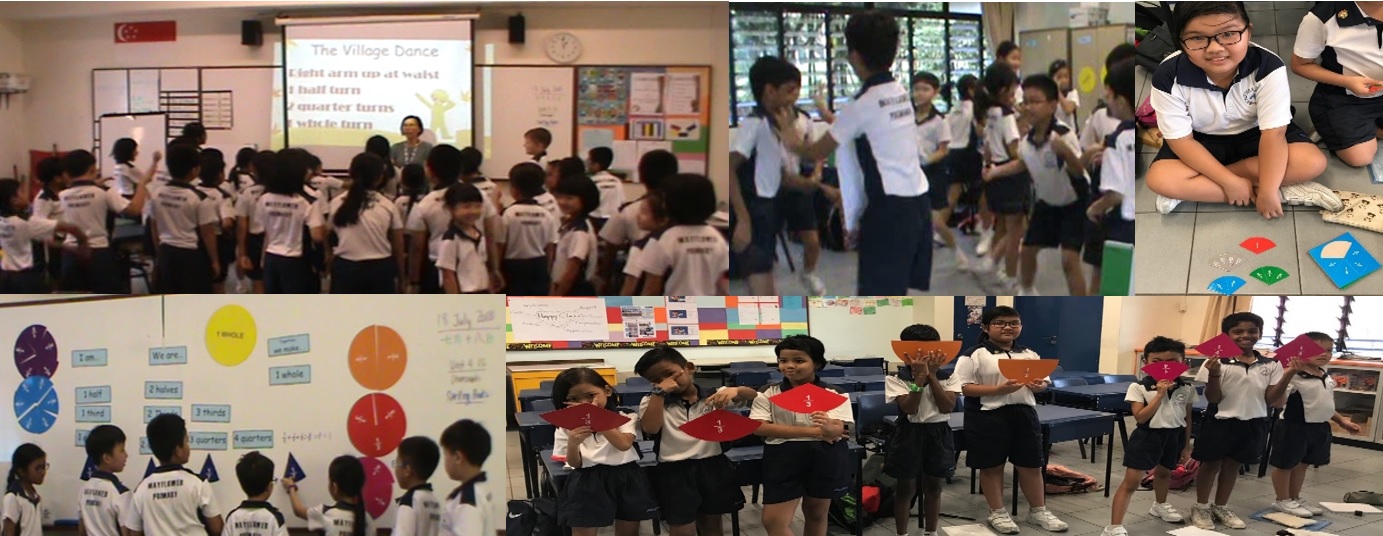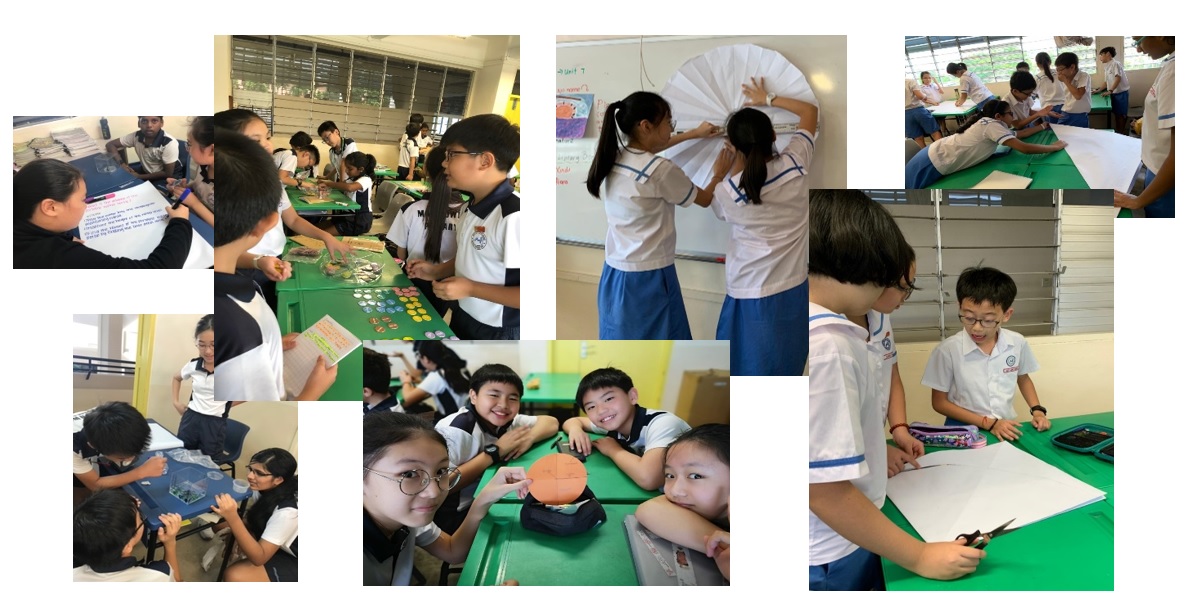Mathematics
Mathematics
Learning Outcomes
Mathematics education aims to enable students to:
-
acquire and apply mathematical concepts and skills for everyday use and continuous learning;
-
develop thinking, reasoning, communication, application and metacognitive skills through a mathematical approach to problem solving;
-
build confidence and foster interest in mathematics.
Department Programmes
Interdisciplinary Learning Journeys/ Trails
The activities help students relate mathematical concepts to everyday
life and the world around them in a fun and enjoyable way.
Interdisciplinary Project Work
The programme provides students with the opportunity to connect mathematical
concepts with other disciplines.
Teaching Through the Arts Programme (TTAP)
Drama is used as an pedagogical tool to engage students in the learning
of Mathematics in an engaging and enriching way. The nature of the learning
experiences created natural platforms for students to communicate, collaborate
and express themselves to make their thinking visible to their teachers.
Talent Development
Maths E2K (Primary 4 and Primary 5)
The E2K Programme Singapore is tailored for upper primary students who
demonstrate interest and ability in Mathematics. Adapted from Israel’s
E2K Programme which was developed by the Israel Centre for Excellence through
Education (ICEE), schools implement the Programme by using a set of curriculum
units developed by IEE for inquiry-based learning. The topics dealt with
are tangential to the regular school syllabus and aims to strengthen the
essential understanding of the mathematical concepts, while going beyond
the technical handling of solution methods and memorizing formulas. There
are also some topics which are dedicated to enrichment and don’t directly
relate to the core curriculum subjects. All of these aim to create a challenging
and enjoyable learning experience for the students.
Maths Olympiad (Primary 4, 5 & 6)
The programme is a comprehensive course to prepare high progress students
for various mathematical competitions. The objective is to develop higher
order thinking skills through advanced problem solving activities.
Learning Support
Learning Support for Mathematics (LSM) is an early intervention programme started by MOE to provide additional support to students who do not have foundational numeracy skills and knowledge to access the Primary 1 Mathematics curriculum. In MFPS, P1 & P2 students who are in this programme will attend daily Math lessons conducted by a LSM Teacher in a small group setting.
Supporting Your Child in Learning through ICT
In a bid to encourage our learners to be empowered and self-directed, the school has embarked on using an online Mathematics Learning Portal, KooBits ProblemSums. This portal allows students to learn Mathematics online in a fun and engaging manner and students will be able to access self-practice components to improve their work. This portal will be able to complement the Student Learning Space (SLS) in learning Mathematics online. The portal can be accessed at https://www.koobits.com/
The following are also some other websites to aid in the learning of Mathematics.
|
Topic |
Websites |
|---|---|
|
Whole Numbers |
http://www.numbernut.com/
|
|
Number Bonds |
|
|
Addition & Subtraction |
|
|
Multiplication Tables |
|
|
Fractions |
http://nlvm.usu.edu/
|
|
Time |
https://www.softschools.com
|
|
Shapes and Patterns |
http://nlvm.usu.edu/
|
|
Model Drawing |
|
|
MOE Math Syllabus |
|
Teaching Through the Arts (Primary 3 Fractions)

Primary 3 students learning the topic on Equivalent Fractions through drama and play
Learning Experiences and Performance Tasks

Primary 1 students learning the topic on Number Bonds through the use of manipulatives

Primary 5 and 6 students experiencing rich learning through performance tasks

